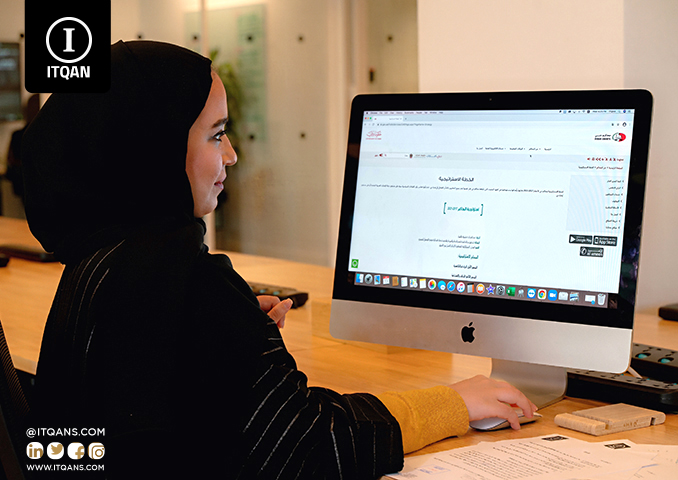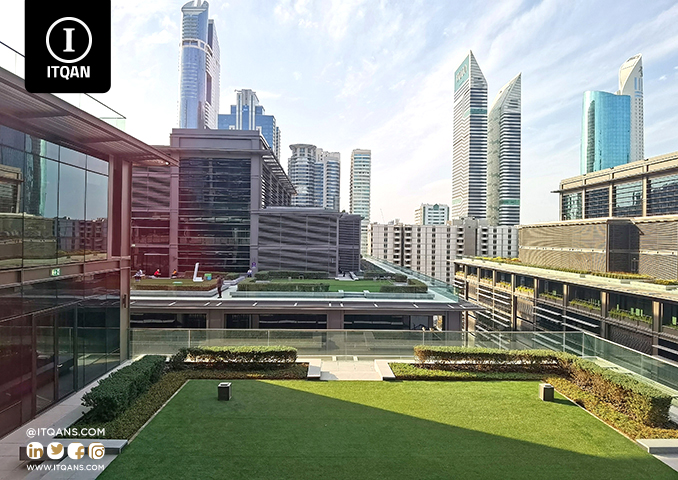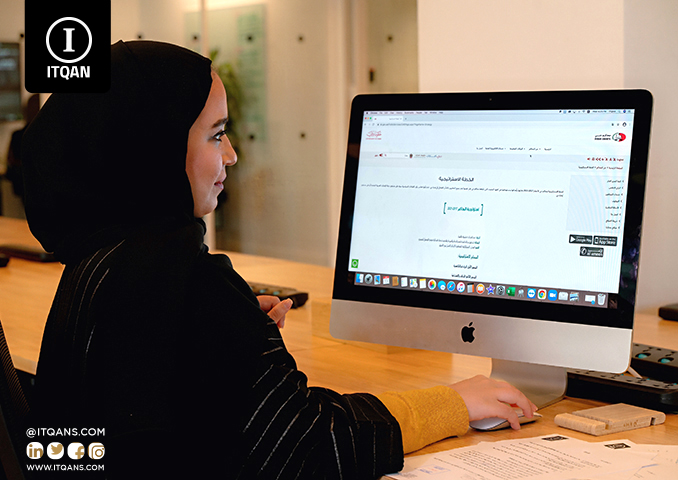Establishing a company in the Ras Al Khaimah Free Zone is considered a strategic and important step in the world of business, as this region provides the opportunity for companies to benefit from the favorable economic environment and operational facilities provided. Ras Al Khaimah is characterized by political stability and laws that support business, making it an ideal destination for investors wishing to establish their companies.
Focusing on setting up companies in Ras Al Khaimah Free Zone, we can explore the procedures and requirements needed to start a business, as well as the benefits and challenges that investors may face during the process.
This article will include a review of the basic procedures required to establish a company in the Ras Al Khaimah Free Zone, including choosing the appropriate company type, defining the business activity, and submitting the necessary documents. We will also discuss the economic and tax benefits of establishing companies in this region, as well as the challenges that can be faced and how to overcome them.

Necessary procedures for establishing a company in Ras Al Khaimah Free Zone
To establish a company in a free zone in Ras Al Khaimah, you must follow several procedures and submit the required documents. Here are the basic steps to take:
- Choosing the type of company: Before starting the process, you must decide what type of company you want to establish, whether it is a joint stock company, a limited liability company, or an individual company.
- Choosing a business activity: You must determine the type of business activity that the company intends to practice in Ras Al Khaimah Free Zone.
- Determine the trade name: You must choose a unique and appropriate name for the company and ensure that it does not conflict with the names of existing companies.
- Payment of Fees: You must pay the fees required to submit and process the application.
- Waiting for approval: After submitting the application and required documents, the relevant authorities will process and consider the application, and this may take some time.
- Establishing the company and obtaining the necessary licenses: Once the application is approved, you can complete the procedures for establishing the company and obtain the necessary licenses to start work.
Types of companies that can be established in a free zone in Ras Al Khaimah
In a free zone in Ras Al Khaimah, several types of companies can be established that vary according to the needs of investors and the type of business activity desired. Here are some common types:
- Limited Liability Company (LLC): It is a company that can be established with a capital contribution from partners specified in the social contract, who enjoy limited liability for debts and obligations.
- Public Joint Stock Company (PJSC): This is a public type of company whose shares can be listed on the financial market.
- Private Joint Stock Company (PSC): It differs from a public joint stock company with regard to offering shares to the public and trading on the stock exchange.
- Limited liability company in a free zone: This company has great freedom in commercial activities and local legislation.
- Sole Proprietorship: A single person can establish this type of company, and he bears full responsibility for debts and obligations.
- Limited Liability Company (LLC) in a free zone: This company is ideal for small and medium-sized companies and offers great flexibility in management and legislation.
- Joint Stock Limited Liability Company (PLC): This type of company combines the features of a public joint stock company and a limited liability company.
- Subsidiary: A foreign company can establish a subsidiary in the free zone as its branch to carry out its commercial activities.
Regulations that companies must adhere to
Companies in the Ras Al Khaimah Free Zone follow several regulations and legislation that regulate their work and define the responsibilities and obligations they must abide by. Among these main regulations:
- Registration and establishment regulations: These regulations specify the procedures and requirements necessary to register and establish companies in the free zone, including the required documents and registration fees.
- Labor regulations: These define the rights and duties of employers and workers, and include issues such as working hours, vacations, salaries, and safe and healthy working conditions.
- Tax regulations: These determine local taxes and tax requirements for companies in the free zone, including income taxes and value-added tax.
- Safety and Environmental Regulations: These define the environmental and safety requirements that companies must adhere to to protect the environment and the safety of workers and the local community.
- Intellectual Property Regulations: Define intellectual property rights, patents, trademarks, and trade secrets and deal with intellectual property violations.
- Foreign Trade Regulations: They regulate import, export and international trade operations, including customs, taxes, and regulations issued by the relevant authorities.
- Partnership regulations and responsibilities: They define the legal relationships between the company’s partners and the financial and administrative responsibilities of each partner.
- Public and private company regulations: They define the rules and regulations for certain types of companies, such as public or private joint-stock companies.
The cost of establishing a company in the free zone
The cost of establishing a company in Ras Al Khaimah Free Zone varies based on several factors such as the type of company, the amount of capital required, and the additional services that it may need. Here is a general estimate of the cost of setting up a company in Ras Al Khaimah Free Zone:
- License fees: These include fees charged by local authorities to obtain the necessary license to establish a company. These fees vary based on the type of company and type of business.
- Nominal capital: Companies in the free zone must specify a nominal capital for their establishment, which can vary between different companies according to the requirements of local authorities.
- Rental fees: If you rent a company office in a free zone, you will incur the cost of renting the property according to the market rates in the area.
- Additional service fees: The company may need additional services such as legal consulting or tax consulting services, and this may incur an additional cost.
- Registration and administration fees: These fees may include the cost of company registration procedures and other administrative costs.
Documents required to submit an application to establish a company in a free zone
In most free zones in the UAE, the procedures and requirements are largely similar to establishing companies in the private sector, but some free zones may require specific documents in addition. Here is a list of the basic documents you may need to apply to establish a company in a free zone :
- Company license application form: The company license application form submitted by the relevant authorities in the free zone must be filled out.
- Company document (Memorandum of Association): Contains basic information about the company such as its name, type, address, purpose, and shareholder information.
- Main office lease form or title deed: Proves that you have an office in the free zone, whether you rent it or own it.
- Bank letter: You must submit a letter from the bank confirming your ability to provide the nominal capital required to establish the company.
- Personal Information Form for Shareholders and Directors: Requires shareholders and directors to provide complete personal information including name, nationality, date of birth, and residential address.
- Identity documents: Scanned copies of passports or identity cards of all shareholders and directors.
- Activity-specific licenses: In some cases, you may need additional licenses depending on the company’s activity, such as an industry, trade, or services license.
- Additional Documentation (as needed): You may need additional documentation depending on the specific free zone requirements.
Advantages of establishing a company in the free zone
Establishing a company in a free zone gives companies many advantages and benefits that make them attractive to investors. Among these advantages:
- 100% ownership: In many free zones, foreign companies and investors are allowed to own their company 100%, without the need for a local partner.
- Tax exemption: Freedom zones often provide full or partial exemption from taxes on income, profit and capital, reducing the tax cost of businesses.
- Simple procedures for incorporation: In general, establishing companies in the Hurriya areas is easier and faster compared to traditional procedures in the country.
- Easy access to international markets: Thanks to the advanced infrastructure and strategic location, the Freedom Zones help companies easily access global markets.
- Distinctive logistical services: Al-Hurriya areas provide integrated logistical services that include warehouses, transportation, and customs clearance, which facilitates supply and distribution operations.
- Advanced infrastructure: Al-Hurriya areas provide advanced infrastructure that includes modern facilities, business centers, and office spaces, which facilitates the work of companies and increases their effectiveness.
- Ease of transferring profits: The flexible work framework in the Freedom Zones allows profits to be easily transferred abroad without major restrictions.
- Obtaining permits and licenses quickly: Thanks to strong relationships with government agencies, companies can obtain licenses and permits faster in the Freedom Zones.
At the conclusion of our article about establishing a company in a free zone in Ras Al Khaimah, we find that this region provides an ideal environment for companies seeking to expand and grow in the UAE market and the region in general. Ras Al Khaimah is located as an emirate within the United Arab Emirates, and is distinguished by its encouragement of investment and provision of the necessary infrastructure and easy tax and customs facilities for companies.
As a free zone, Ras Al Khaimah offers diverse opportunities for companies from all sectors to benefit from the services and benefits offered, such as customs facilities, no taxes on profits, and allowing 100% foreign ownership.
In addition, investors enjoy easy access to local and regional markets, and with its strategic location in the Gulf, Ras Al Khaimah is considered a gateway for trade between East and West.
It is worth noting that the process of establishing a company in a free zone in Ras Al Khaimah requires following certain procedures and submitting the required documents, which must be done carefully to ensure the success of the process and full compliance with local laws and legislation.
In short, establishing a company in Ras Al Khaimah Free Zone represents a great opportunity for investors and businessmen who are looking for a productive and supportive business environment for growth and prosperity. Your investment in this region could be the right step towards building a successful business in the UAE and beyond.
The most important frequently asked questions about establishing a company in the free zone
What free domains are available for establishing companies?
Free zones can be found in most emirates, such as Dubai, Abu Dhabi, Ras Al Khaimah, Sharjah, Ajman, Umm Al Quwain, and Fujairah.
What commercial activities are allowed in the free zone?
Permitted business activities vary depending on each free zone, but usually include light and heavy industry, trade, financial services, technology, logistics, and others.
What are the necessary procedures to establish a company in the free zone?
The incorporation application must be submitted to the competent authority in the free zone and the required documents must be submitted such as copies of passports and a business plan.
What are the tax benefits of establishing a company in a free zone?
Free zones usually provide full or partial exemption from taxes on income, profit and capital.
Can foreign companies establish branches in the free zone?
Yes, foreign companies can establish branches in the free zone provided that they adhere to local laws and regulations.
What logistics services are available in the free zone?
Logistics services available include warehousing, transportation, customs clearance, and other logistics services that facilitate supply and distribution operations.

















